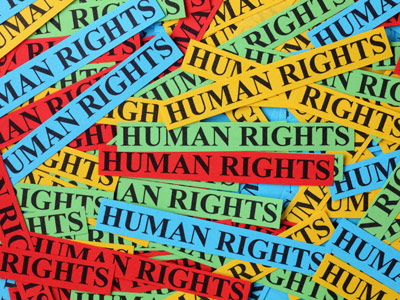

Rights and Responsibilities 01
This KS3 Citizenship quiz looks at rights and responsibilities. During the Second World War, millions were killed during the fighting. Many crimes were committed, for example, deliberately killing or torturing civilians and prisoners of war. It was events of the Second World War that paved the way for universal human rights to be given greater importance around the world.
In December 1948, the Universal Declaration of Human Rights was adopted by the United Nations organisation. Several countries whose political systems did not allow equal rights did not vote. The following year, the fourth Geneva Convention took place. This set out the rights of civilians, prisoners of war and wounded or sick armed forces personnel in any future wars.
Laws are in place to ensure everyone gets equal rights. The rights that every UK citizen can expect are set out in the 1998 Human Rights Act.
Ready for more?
not all...
quizzers. Try to win a coveted spot on our Hall of Fame Page.






